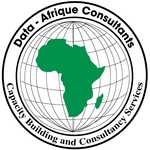|
|
Farmer Field School FFS Training
USD 2,950 |
Venue: Nairobi
Farmer field school (FFS) is a group-based learning process that brings together concepts and methods from agro-ecology, experiential education, and community development. It also involves regular field observations and group analysis. It is a major undertaking towards the realization of sustainable agriculture as it helps farmers make their own locally specific decisions about crop management practices. Special group activities encourage learning from peers and strengthen communicative skills and team building. This training course is therefore intended to help participants to design and implement Farmer Field Schools as an extension practice to promote organic farming and agricultural productivity.
Course Objectives
By the end of this course the participants will be able to:
- Understand well the concept of FFS and have skills to implement it.
- Learn new technologies in agriculture.
- Incorporate technologies of FFS according to local conditions.
- Select and apply appropriate weed, pest and disease management practices for both animal and plant production in an organic farm.
- Select appropriate organic management systems for different organic farms.
- Gain skills in cross-cutting issues in FFS.
- Gain skills in the climate change and agriculture.
Duration: 5 Days
Who Should Attend
This course is intended for various actors in Agriculture Extension (Agricultural extension officers, senior agricultural officials, and policy makers) working with communities, in governments, funding agencies, Research organizations and non-government organizations among others for Agriculture.
Course Content
Module 1: Approach and Principles
- Historical background
- Approach and Concept
- Steps in conducting FFS.
- Organization and management of FFS
- FFS field guide.
- Field day
- Graduation
Module 2: Key concepts and techniques in FFS
- Ecosystem
- Concept of what is this.
- Agro ecosystem analysis (AESA)
- Participatory technology development
- Village Immersion
Module 3: Cross-cutting topics in FFS
- Non-formal education methods
- Facilitation skills
- Leadership
- Folk media
- Grant /revolving fund proposal format
- Report writing
- Group dynamics
- Team building
- Evaluation
Module 4: Introduction to organic farming
- Need for sustainable agriculture.
- GMO vs organic farming
- Principles of organic farming
- Economic viability and market opportunities for organic producers
- Designing sustainable and resilient organic farming systems
Module 5: Organic farming
- Integrated farm management systems
- Organic soil management and crop nutrition
- Weed management
- Pest and disease management
- Livestock management
- Post-harvest storage, handling, and processing
Module 6: Climate change and agriculture
- Climate change and agriculture
- Impact of climate change on food and nutrition security
- Response to food security challenges from climate change
- Agriculture and GHG Emissions: Mitigation options with food security synergies
Module 7: Development technologies in agriculture
- ICT in agriculture
- Application of GIS and remote sensing in agriculture
- Monitoring and evaluation of agricultural projects
- Data analysis
General Notes
- This course is delivered by our seasoned trainers who have vast experience as expert professionals in the respective fields of practice. The course is taught through a mix of practical activities, theory, group works and case studies.
- Training manuals and additional reference materials are provided to the participants.
- Upon successful completion of this course, participants will be issued with a certificate.
| Nairobi | Dec 09 - 13 Dec, 2024 |
Class Session: 08:00:am - 04:00:am
| USD 2,950.00 | (Kigali) |
| USD 4,500.00 | (Dubai) |
| USD 1,500.00 | (Nairobi) |
| USD 1,500.00 | (Mombasa) |
DUNCAN KARIUKI +254723360025
Tags: |
Farmer Field School FFS Agricultural Extension Officers Senior Agricultural Officials Policy Makers |



